Found 17 results for Lag BaOmer
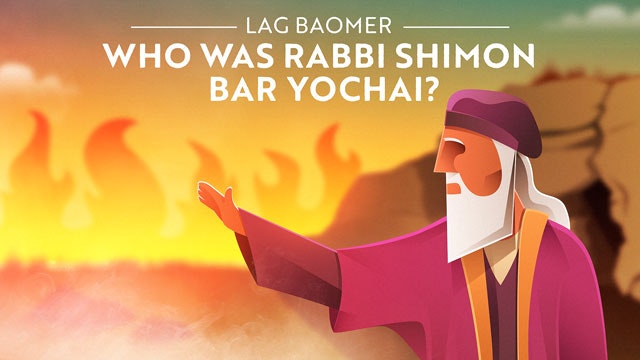
Rabbi Shimon Bar Yochai
Lag baOmer. It’s the day when we put aside (or pause) the mourning of the Omer, switch the radio back over to FM, and get those long-overdue haircuts and shaves. But what happened on Lag baOmer that makes it such a special day? What exactly are we celebrating? One reason, according to tradition, is that we commemorate the anniversary of the death of Rabbi Shimon bar Yochai: the great Talmudic sage from the second century, who famously spent all of his time studying Torah. Today, tens of thousands of people travel to his burial place in Meron, a small town in northern Israel, where they sing and dance around giant bonfires to celebrate his legacy. But who exactly was Rabbi Shimon Bar Yochai? What about his legacy is so important that we celebrate it every year? Well, for one thing, Rabbi Shimon bar Yochai was the man who, according to the Talmud, almost burnt the world to a crisp. Oh, you’ve never heard that story? Do you want to hear it? It’s a good one — and it just may hold the key to understanding Lag baOmer. If you’d like to get to know the man whose legacy is one of the driving forces behind this holiday, come and join us and study this important Talmudic story about his life. Spoiler alert: there are lasers (kinda)! Learn more about this holiday by visiting our page on Lag BaOmer.
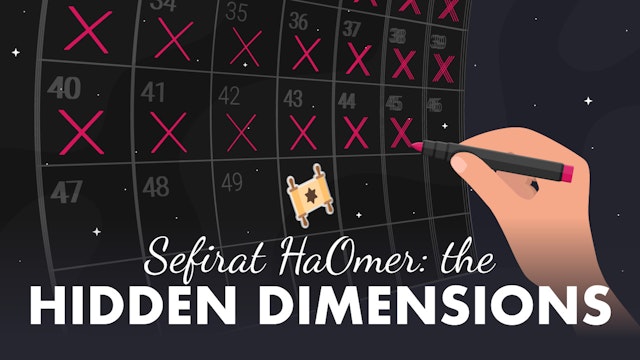
Hidden Dimensions of Sefirat HaOmer, Part 3
↳ part 3 of 5 of the series "Hidden Dimensions of Sefirat HaOmer"
Hear Rabbi Fohrman's latest insights into the meaning of Sefirat Ha'Omer! This recording is from a live zoom series Rabbi Fohrman gave in partnership with the Five Towns-Far Rockaway Virtual Bais Medrash, April 27 - May 24, 2020.
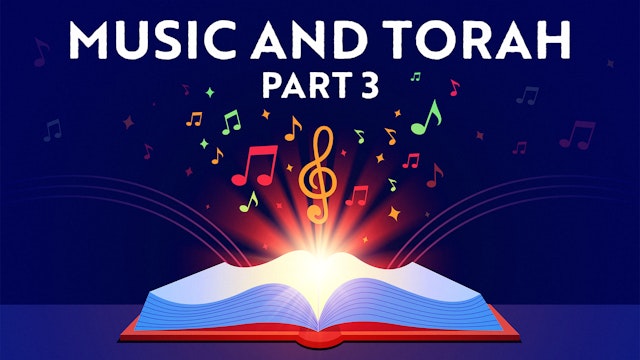
Exploring the Harmony Between Sound and Sacred Texts Episode 3
↳ part 3 of 5 of the series "Exploring the Harmony Between Sound and Sacred Texts"
In 5-part series of lightly edited conversations, Rabbi David Fohrman and musician/music teacher Moshe David Frankel explore the fascinating interplay between musical theory and Torah. These freewheeling discussions, sometimes joined by Rabbi Fohrman’s son Avichai, a budding composer, delve into themes like rhythm, melody, harmony, and their surprising connections to biblical stories and concepts.
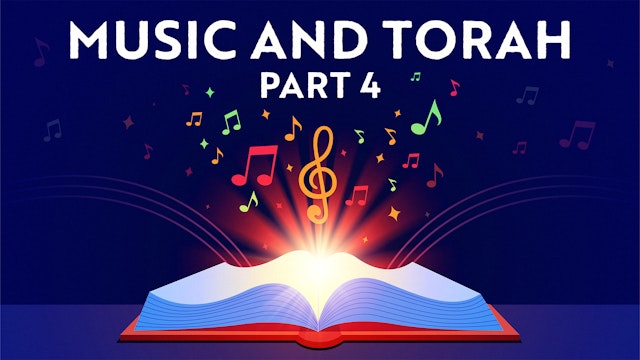
Exploring the Harmony Between Sound and Sacred Texts Episode 4
↳ part 4 of 5 of the series "Exploring the Harmony Between Sound and Sacred Texts"
In 5-part series of lightly edited conversations, Rabbi David Fohrman and musician/music teacher Moshe David Frankel explore the fascinating interplay between musical theory and Torah. These freewheeling discussions, sometimes joined by Rabbi Fohrman’s son Avichai, a budding composer, delve into themes like rhythm, melody, harmony, and their surprising connections to biblical stories and concepts.
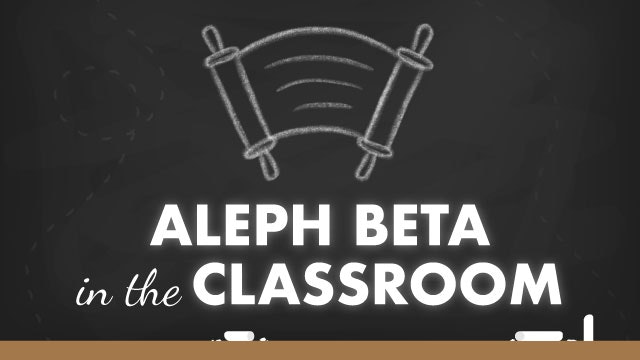
Using Aleph Beta in the Classroom
Come join Beth Lesch for a tour of Aleph Beta resources that can help bring the Torah to life in your classroom or homeschool setting, as well as ideas about how to turn these resources into engaging lessons or assignments. Click here to access the document that Beth shares in the video. Are you a teacher? Want to get the most out of Aleph Beta for yourself and your students? Consider signing up for an Educator account. Whether you are teaching from the classroom or the internet, an Aleph Beta Educator account can support your specific needs. Not only does an Educator account allow you to view absolutely all of our recorded materials, but it comes with additional perks to give you the support you need to serve your students! When you subscribe for your new tax-deductible Educator account, you'll receive: Unlimited streaming time in our library Access to exclusive premium content Printable lecture outlines & transcripts Teacher’s Guides designed to integrate Aleph Beta in the classroom Streaming audio lectures Free downloadable app for Apple & Android devices An invite to our private Facebook community Access to live events with Rabbi Fohrman A license for public viewing, not available at any other membership level And our most important feature…… 10. The ability to create up to 30 student accounts for your students to use at home! Yes, you read that right. You can now add free member level student accounts to your plan. This feature is great if you want to assign videos for homework or for projects. Sign up today!
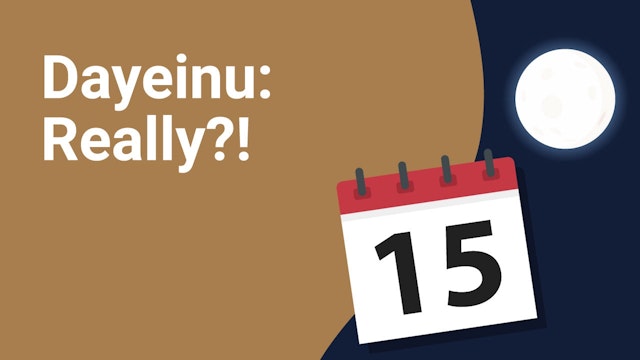
What Does Dayenu Mean?
Many songs are sung during the Passover seder, including the song of Dayenu, literally meaning “it would have been enough.” With its catchy Hebrew chorus, everyone at the seder can heartily join in. But behind the fun lyrics lies a profound message of wisdom that shouldn’t be missed. Singing the 15 stanzas, the Dayenu takes us on a journey through the history of the Israelite nation, detailing the nation’s tragedies and God’s miracles that saved them. In this respect, Dayenu is an appropriate song for Passover, as one of the commandments is to personally experience the redemption from slavery to freedom. But after each event, the song reflects that if this was God’s only intervention to save the Israelites, “it would have been enough.” What does “enough” mean? What are we thankful for by singing Dayenu? In this video course, Rabbi Fohrman looks closely at the song’s structure to find a deeper meaning behind the lyrics. Entering through a rabbit-hole of questions, Rabbi Fohrman uncovers that Dayenu may be a path to understanding the events that led to the miracle of the Exodus. Discover other great Passover videos at Aleph Beta, including ‘Did God Allow Slavery?’, ‘Understanding Moses’ Miracles’, and ‘What Does It Mean To Be God’s Chosen People’
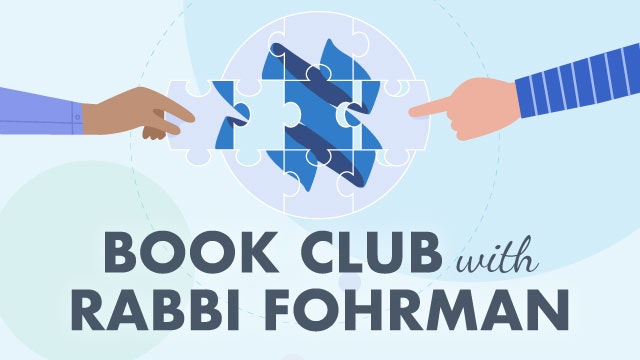
Book Club with Rabbi Fohrman, Parshat Vayikra 2
↳ part 4 of 14 of the series "Book Club With Rabbi Fohrman"
Enjoy this recording of Book Club for Parshat Vayikra. Book Club is an exclusive weekly event for Producers Circle members. Participants join Rabbi Fohrman to read and discuss the latest chapter of his newest manuscript. This is an incredible opportunity to be a part of Rabbi Fohrman's learning and writing process, to offer feedback, and genuinely impact what will make it into the next book. Not to mention a chance to hear the extra “bonus” material that doesn’t make it in. Book club meets every Mondays, 12-1:30 pm ET. Sign up for Producers Circle to attend. Already a Producers Circle Member? Check your inbox -- Zoom link and new chapter are emailed out every Saturday night. You can find the chapter being discussed in this recording and all previous chapters here. "[Through Book Club we are] really seeing how a diverse group of people bring their unique insights and create a whole that is greater than the sum of its parts. Thank you so much for including all of us in this process!" -- Miriam Goldie Huttler, Producers Circle Member
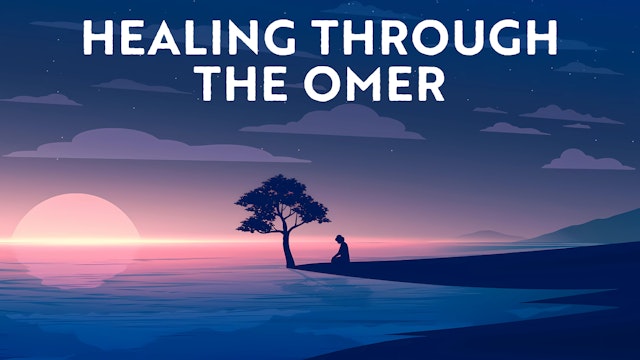
Takeaways for the Age of COVID-19
↳ part 8 of 8 of the series "Sefirah, Prayer and Healing from Trauma"
In this final episode to the series, Rabbi Fohrman and Imu link Sefirah back to Refa’einu, the blessing for healing, to tie together the many themes of this series into a single timely message of faith. This series traced the Israelites’ journey from Exodus to Sinai, through the story of marah and the manna, to show the incredible process God used to heal the Israelites from the trauma of slavery. Now, join Rabbi Fohrman and Imu for their final reflection on how these textual insights speak to the spiritual crises that COVID-19 has raised -- maintaining faith in a time of unknowns, recovering from trauma, persevering in the face of fear -- to offer empowering and inspiring guidance through these challenging times.